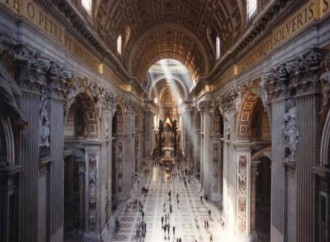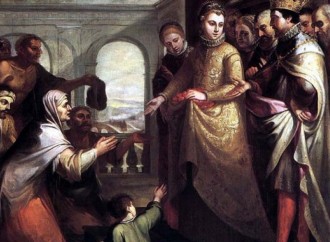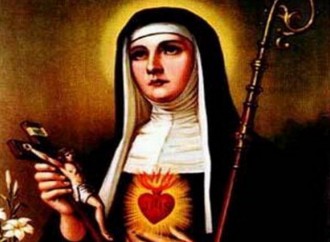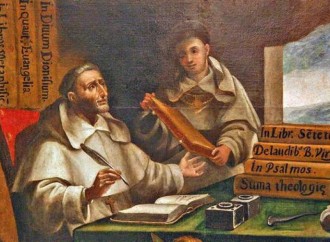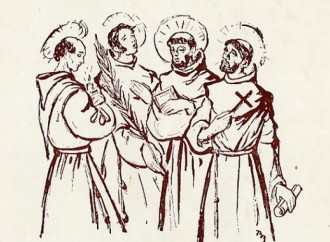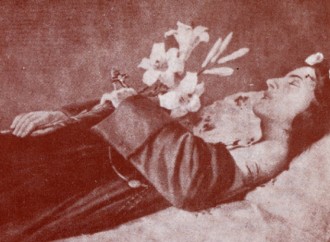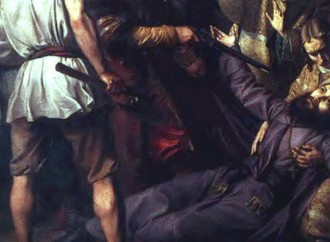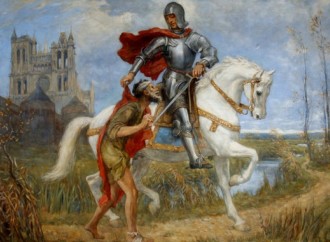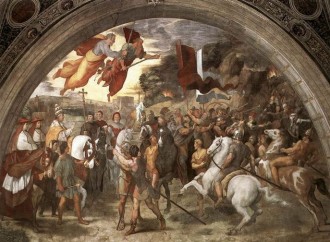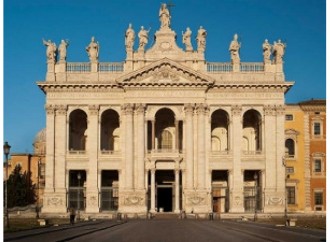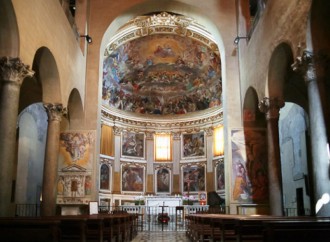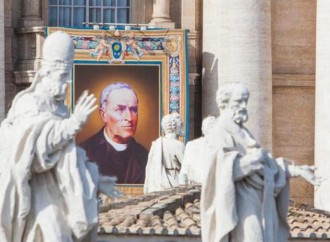Dedication of the basilicas of Saints Peter and Paul
Erected on the tombs of Saints Peter and Paul, not far from the places where they suffered martyrdom under Nero, the basilicas dedicated to them are remembered in a single commemoration.
Saint Elizabeth of Hungary
She was among the highest examples of Christian charity, which she exercised to the point of begging for the poor and the sick. In her short but very intense earthly life, Saint Elizabeth of Hungary (1207-1231) was a princess, bride, mother of three children, widow, and Franciscan tertiary.
Saint Gertrude the Great
Precursor of the cult of the Sacred Heart of Jesus, Saint Gertrude or Geltrude (1256-1302), known as the Great, was a mystic who spent almost all her life in that exceptional centre of spirituality and culture that was the Monastery of Helfta.
Saint Albert the Great
The genius of St Albert the Great (c. 1200-1280) can be appreciated simply through his explanation of the perfect harmony between faith and science, his teachings transmitted to St Thomas Aquinas and his critical appreciation of Aristotle.
Saints Nicholas Tavelić and Companions
We should not forget the example of these four glorious Franciscan martyrs (†14 November 1391), who spent years in the Holy Land to guard the places of the life, death and resurrection of Our Lord. Imitating Saint Francis in his encounter with the Sultan, they announced Jesus Christ to the Muslims.
Saint Agostina Pietrantoni
Saint Agostina Pietrantoni (1864-1894) lived in the years immediately following the Unification of Italy, marked by radical hostility to Catholicism on the part of power. She served God by giving herself to the sick...
Saint Josaphat Kuncewycz
Saint Josaphat Kuncewycz (1580-1623) had such a love for the Church and her unity that he asked God for the grace of martyrdom. He wished to offer himself as a sacrifice to reconcile all the schismatic churches into the one fold.
Saint Martin of Tours
Many people know the episode of the cloak, but few are aware of the extraordinary mark left by St Martin of Tours (316-397) on the history of the Church.
Saint Leo the Great
Aware of the very high responsibility of the Petrine ministry, he was among the greatest pontiffs of all time. St. Leo the Great (c. 390-461) led the Church for over 21 years, protecting her from heresies and forces of disintegration, while in the West the Roman Empire was crumbling.
Dedication of the Lateran Basilica
The Lateran Basilica is the oldest in the West and above all, being the cathedral of Rome, the most important in all Christianity. This is evident from the title with which it is honoured and that sums up the reason for its commemoration today: Omnium Urbis et Orbis Ecclesiarum Mater et Caput, Mother and Head of all the Churches of Rome and the World.
Four Crowned Saints
Mindful of the example of St Peter and the apostles before the synedrium, they knew they had to obey God rather than men, beginning with the exercise of their profession. Thus it was that the stonemasons Simphorianus, Claudius, Nicostratus and Castorius, known as the Four Crowned Saints (†304), suffered martyrdom during Diocletian's persecutions.
Saint Vincenzo Grossi
This priest became a saint by carrying out his ministry in faithfulness to God, whom he served in his daily life. He spent hours in the confessional, educating consciences in the Christian virtues and nourished himself with prayer, penance and contemplation of the Blessed Sacrament.
